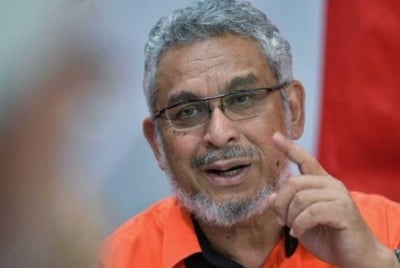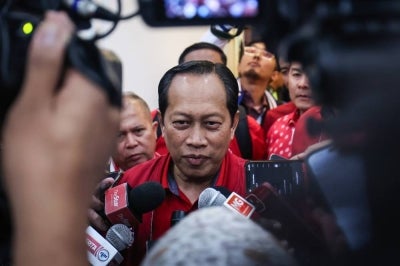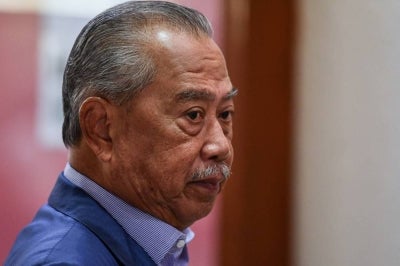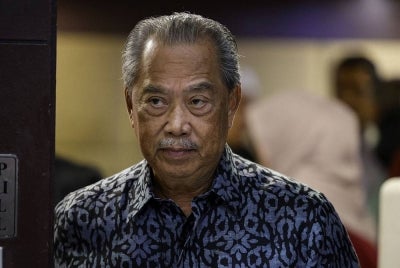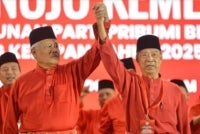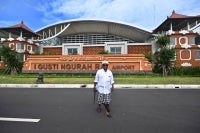Pas is definitely here to stay, say experts

SHAH ALAM - With Pas's remarkable victory in the recent state election, experts expect the Islamist party to grow exponentially, especially with the rise of Islamic revivalism worldwide and the party's strong support from its supporters, whether young or old.
According to Universiti Putra Malaysia Political Science Lecturer Nur Ayuni Mohd Isa, Pas was founded in 1951 and was established by a group of religious scholars who took the step to depart from Umno due to their disagreement with the ideologies and philosophies held within Umno's leadership.
"They formed a new party characterised by Islam and rooted in the Quran and Sunnah, naming it Parti Islam SeMalaysia (Pas) as an alternative to Umno.
"The establishment of Pas had three main goals in its early stages: to free the Malay race and Malaya from colonization, to establish a universal Islamic state, and to make Malaya an Islamic nation," she said.
Pacific Research Centre of Malaysia principal adviser Dr Oh Ei Sun also mentioned that Pas was initially established by religious and technocratic Umno leaders who were fairly moderate, but the party met a huge turning point in the 90s.
"After being caught up in the worldwide Islamic revivalism movement, the party had become more radicalised in its ideologies.
"This has caused it to become more triumphant among the Malay Muslims, to the point Tun Dr Mahathir Mohamad had to bring in Datuk Seri Anwar Ibrahim, then an Islamic youth leader to sort of counter them," he said.
Oh stated that currently, we are witnessing the second and third wave of Islamic revivalism in many countries such as Turkey, Indonesia, and also Malaysia.
"The “green wave’ brought by Pas is a part of this religious revivalism occurring worldwide.
"With an increasing yearning among Muslims for a conservative and religiously oriented outlook for society, Pas's religious appeal attracts people towards them and they [voters] are willing to volunteer, and help with machinery, in order to realise this dream.
Oh added that over the last half-century, Pas has been building many religious schools in rural and semi-urban areas, raising a generation of young supporters from their education initiative.
"So when Undi18 was implemented, it had the unintended effect of magnifying religious youth's support for Pas," he said.
In a related matterm, Ayuni added that the party's strong support is also derived from the religious sentiments created by the party to attract the attention of Malay voters.
"This is done mainly by pandering to the Malay Muslim community with issues of Islam and Malay rights being at risk or threatened.
"They also claim to be the only party to uphold Islam unlike their rivals," she said.
Over the years, Pas had established political coalitions with seven different parties of policies and backgrounds through discussions of common goals.
Among them, the most well-known were Barisan Nasional (BN), Pakatan Rakyat (PR), Muafakat Nasional (MN), and Perikatan Nasional (PN).
These coalitions, she said, stemmed from the political party's threefold ambitions; policy-seeking behavior, office-seeking behavior, and sociological context.
"Pas's policy-seeking behavior occurred from their mission to implement Islamic Judiciary or Hudud into the country.
"However, this resolution resulted in much dissolution of Pas's previous political coalitions as they are adamant on their stand to defend their Islamic policy, even when opposed by colliding parties," she said.
On the other hand, the Islamic party's office-seeking behavior came from Pas's desire to overthrow their long-time nemesis, BN-Umno, by seizing seats in the cabinet while also reaping the possible benefits from cooperating with other opposition parties.
Ayuni stressed that these two ambitions are influenced by a third variable (sociological context), which states that the changes in the current circumstances and mass society may also navigate the direction of Pas's political coalition maneuver.
"It is safe to say that Pas's track record has portrayed sufficient evidence of how the party's policy-seeking and office-seeking ambitions have influenced Pas’s decisions in creating a political coalition," she said.
With Pas capturing Terengganu, Kedah, and Kelantan in the recent state election, the Islamic party is certainly here to stay and a force to be reckoned with in the nation's ever-changing political climate.
Download Sinar Daily application.Click Here!


